In North Port, Ukrainian woman paints a hopeful future as war enters its third year
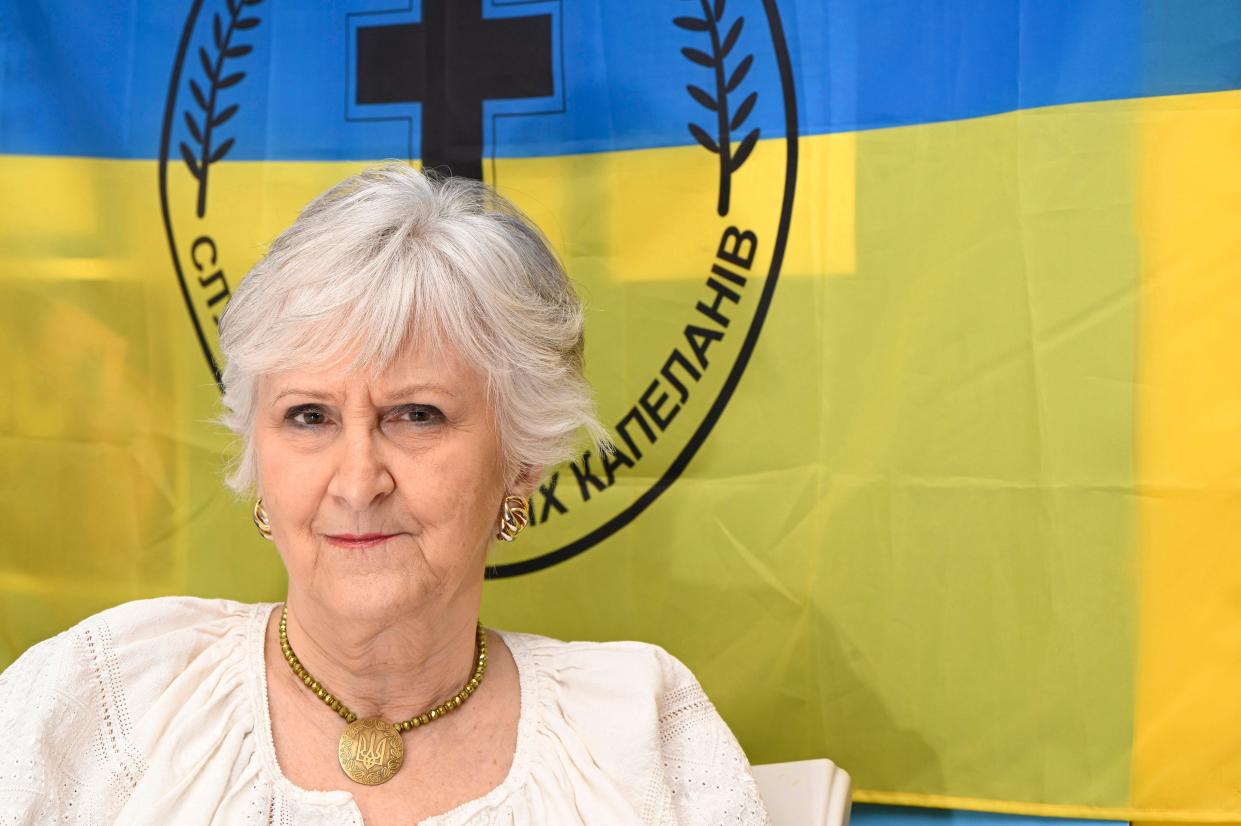
NORTH PORT – Tania Vitvitsky can see a time when Ukraine will one day again draw tourists to bask in the history of the largest country in Europe or marvel at a lush breadbasket of crops while traveling by train from one city to the next.
In mid-January, Vitvitsky, a Sudbury, Massachusetts-based snowbird who is also the president of the Ukrainian Charitable Platform, showcased a slideshow of a two-month-long trip to Ukraine in 2023 to the Branch 56 of the Ukrainian National Women's League of America at St. Andrews Ukrainian Cultural Center.
The membership, she admitted, was unlike her typical audiences at senior centers and community centers, where she highlights the sights of the country and the relative normalcy many Ukrainians enjoy, despite being invaded by Russia on Feb. 24, 2022.
“People don’t know what Lviv is really like,” she told the crowd in English rather than Ukrainian, to accommodate a visiting reporter. “They see all the horrible, horrible images and I want people to experience the beauty of Ukraine and go there at some point, when the war is over.”
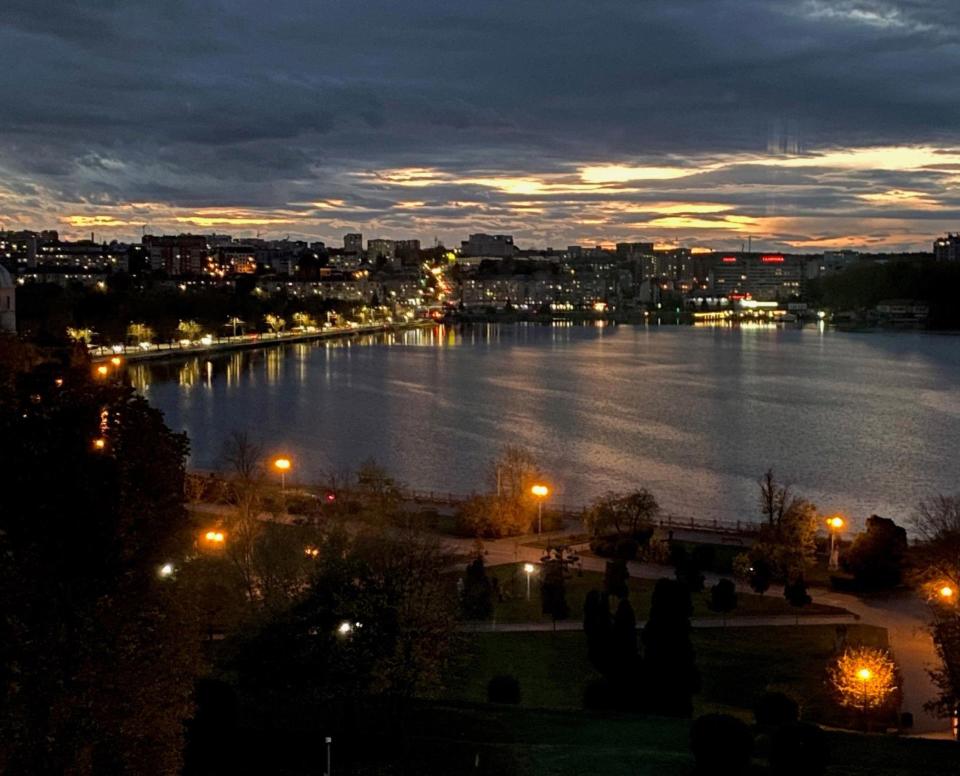
With a recent Russian offensive again claiming territory as the war enters its third year, Vitvitsky is quick to point out that one-third of the population has been displaced from home – either internally or outside the country.
“That’s the scale of the tragedy,” she added.
North Port was scheduled to mark the anniversary of the invasion with a “We Stand with Ukraine” rally from 5 to 6 p.m. Feb. 23 at the intersection of U.S. 41 and Biscayne Drive.
At 10 a.m., Feb. 24, St. Mary’s Ukrainian Catholic Church, 1078 N. Biscayne Drive, held an interfaith day of prayer.
Prior to the war, the country boasted a population of 43 million, while the web site https://worldpopulationreview.com now lists it at just under 37.57 million.
While many school children have become accustomed to attending classes in bomb shelters, that, too, she said, is problematic.
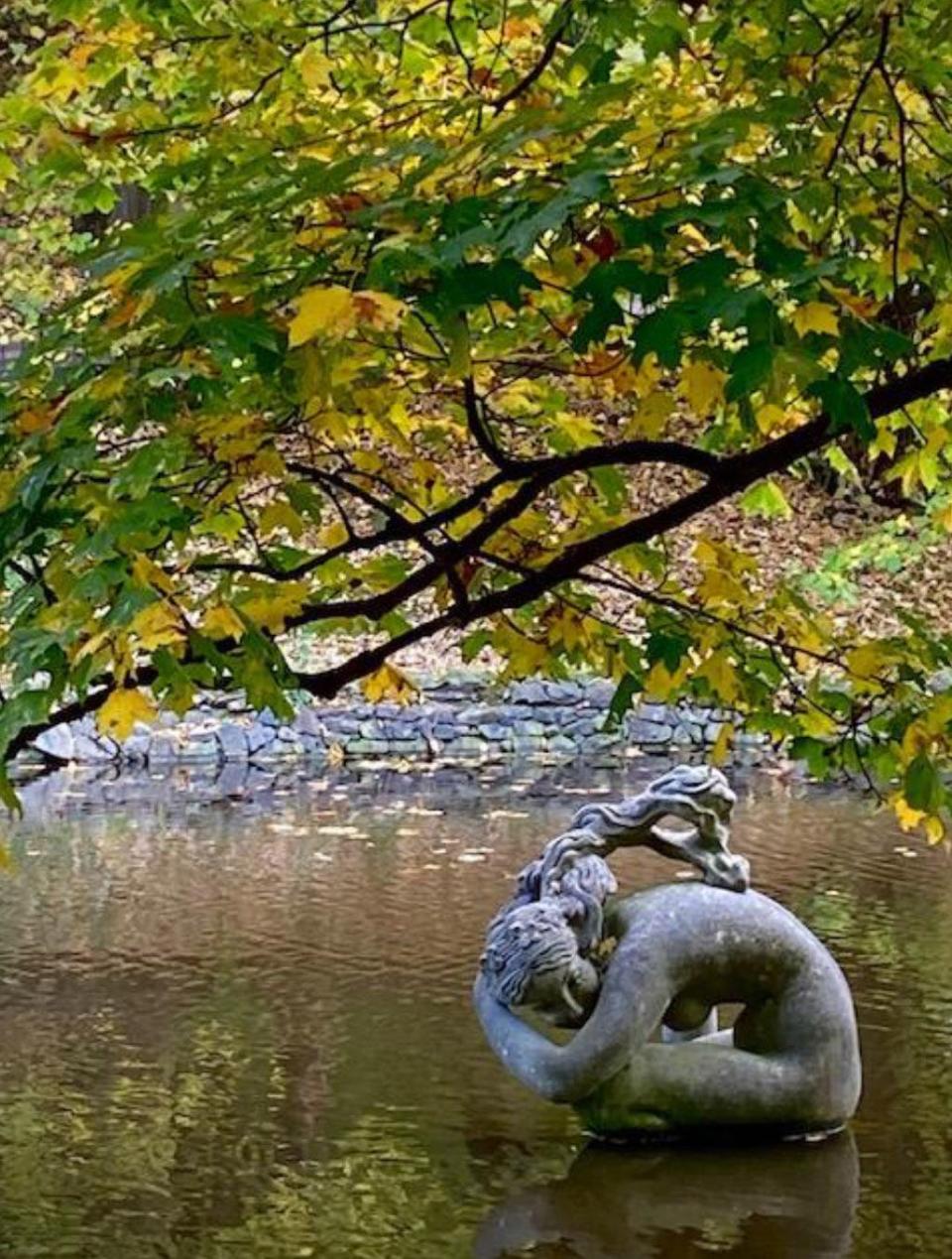
“That’s not normal,” Vitvitsky said. “The teachers try to do programming while they’re in the shelters but they’re already used to it and that's not what childhood should be like.
“The psychological support needs in Ukraine are enormous.”
Raising funds to help rebuild the country
With the exception of the years when travel was restricted because of the COVID-19 pandemic, Vitvitsky had been visiting Ukraine annually since 1991.
In 2022, she noted that air raid sirens were an almost daily occurrence where she traveled but that was no longer the case in 2023, while the infrastructure was much more robust.
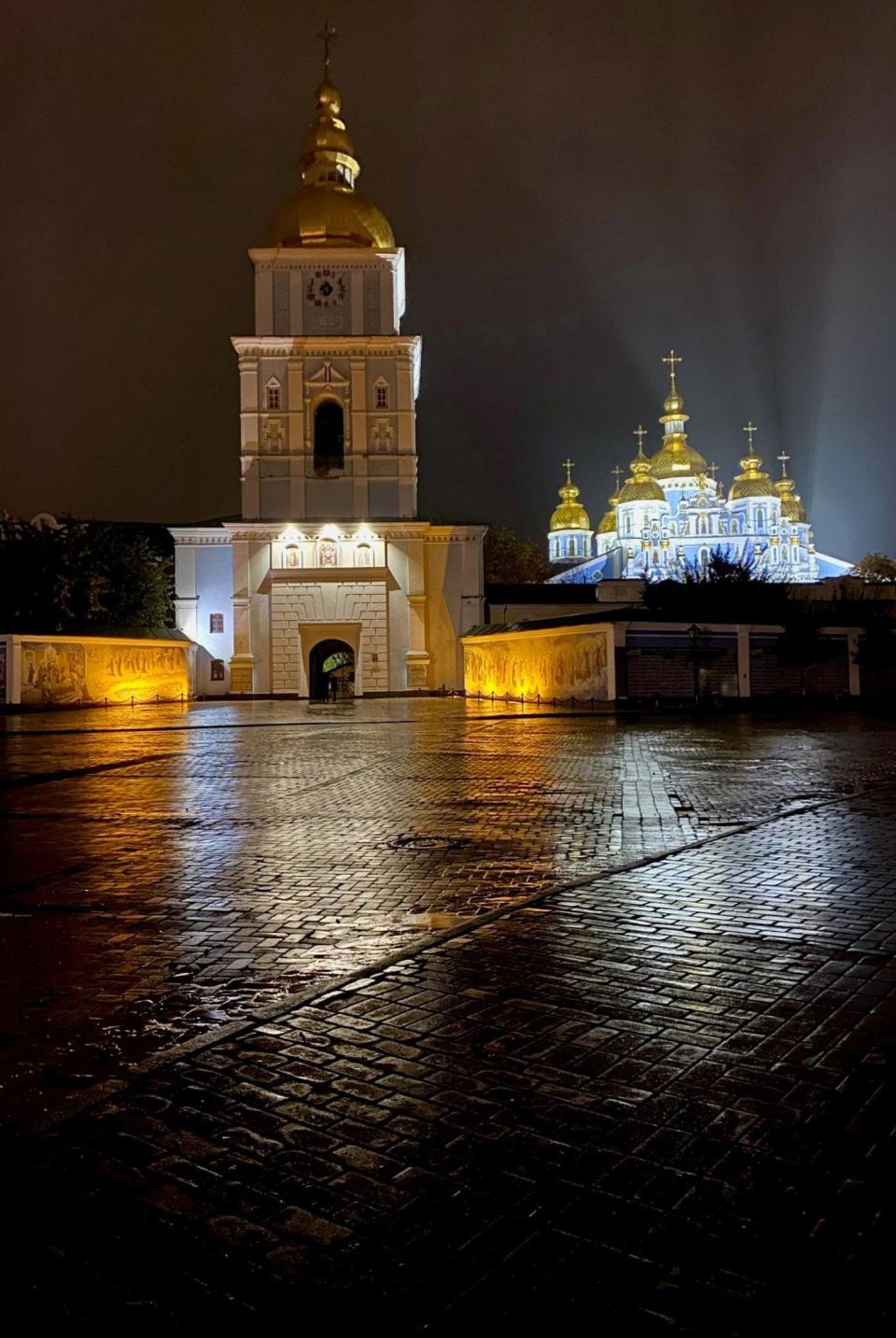
With Ukrainian Charitable Platform (https://ukrainecharitable.org) Vitvitsky has been working to raise funds for Ukrainian Education Platform, once the Lviv Education Foundation. It started in 2000 and specializes in supporting educational and family initiatives. She also works with Building Ukraine Together, which started in 2014 – the year of the first Russian invasion – and and consists of thousands of volunteers who rebuild homes and public facilities.
The charitable platform offers United States-based donors an avenue to support those efforts through a 501(c)(3) nonprofit.
Echoes of a recurrent trauma
Vitvitsky feels even more of a connection to the current wartime situation.
“What’s happening now is what happened to my parents,” said Vitvitsky, who was born in a displaced persons camp in Bregenz, Austria – the French zone of post-World War II Austria.
Her parents fled Ukraine in 1944, and met on a freight train as they fled, leaving everything behind.
Her mother was a pianist who played to accompany choirs.
“All these displaced persons camps, there were schools there, concerts there – life has to go on – so we ended up in the French zone,” Vitvitsky said.
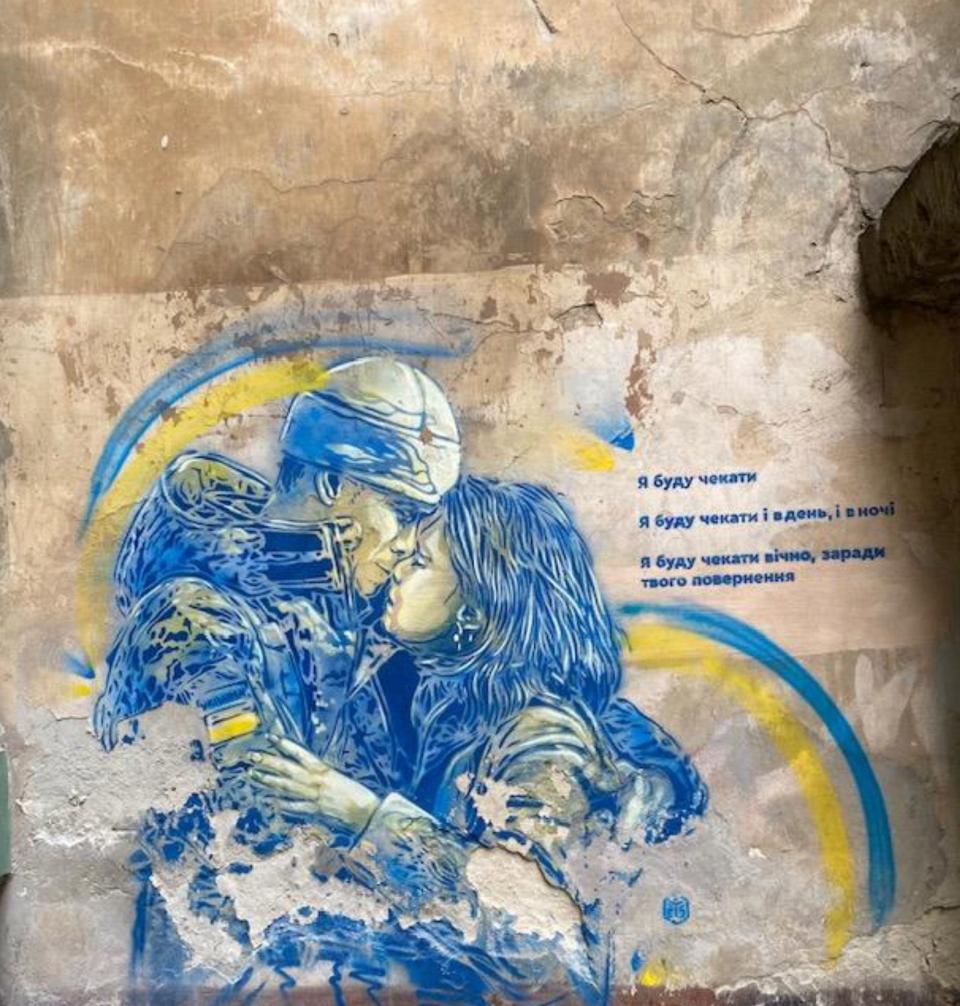
“I’m very glad my parents are not alive to see this because this is a recurrent trauma,” she later added.
Even as the fighting continues, Vitvitsky said the people who persevere away from the frog lines are, “doing the best they can to sustain their community in the time of war and plan for the future.
“You might wonder why I’m talking about tourism but the fact is, people are planning for it,” she added. “I want to set the stage that people know a little more about the country, that they find it attractive … they’ll need tourism and it’s an attractive place to visit.”
This article originally appeared on Sarasota Herald-Tribune: North Port audience learns of Ukraine's rich history amid current war

